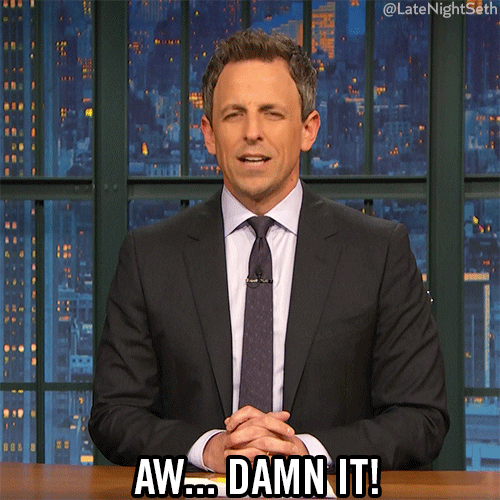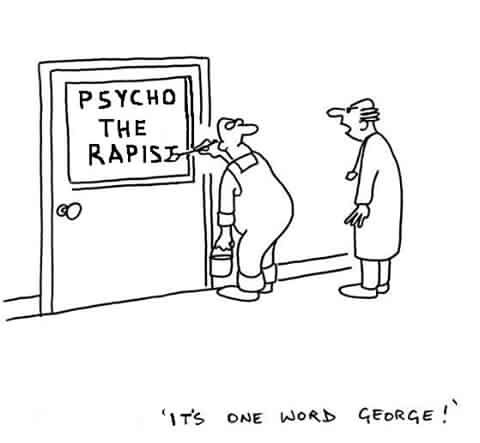
don’t find it to be much of a joking matter, TBH.
Correct but equally it is “not guilty”. Scotland has a third option, which might be of some use in these cases and that is “not proven”. But in England the two options are either guilty or not guilty. If someone is put on trial for rape and they are found not guilty, by definition the Court has found that they are not guilty of rape. To call them a rapist after such a verdict is incredibly problematic, to say the least.
Going back to the OP I’m immediately reminded of the stories of paediatricians homes being attacked by vigilante justice mobs because of an inability from some people to understand long words.
That’s the sort of reason why trial by facebook is never a good thing and why it should be innocent until proven guilty.
There are often many problems with the law though, so a guilty person may not be found guilty because of a technicality, incomepetence, corruption etc. If someone is responsible for a crime but not found legally guilty, I would still expect them to be treated as if they had, but without the prison time. Eg I wouldn’t want to date someone who raped someone, and wouldn’t decide it was okay just because the courts bungled the case.
It’s risk management.
In the eyes of the LAW the investigation and all that works on a ‘PRESUMPTION’ of innocence. However there needs to be a risk factor and that includes protecting the ‘victim’, and there’s is noway the law can treat a victim as a lier, so there’s custody, bail and employers protect themselves and their staff.
It is a strange concept presumption of innocence and usually only gets full coverage when it’s rich and powerful people in the dock, and don’t they pervert the sense.
I wonder if @Kopstar can elaborate and correct me where I’m wrong? 
Additionally while it’s true that you should listen to both sides of the story, when allegations are made and there are no denials made from the accused…well that is very telling.
If I was wrongly accused, I would deny it. If I was rightly accused and hoped I could get away with it then I would issue a denial. Remaining silent isn’t an admission of guilt, but the optics are not great.
Which is true. However, in a hypothetical court of law, the statement " And the accused denied it vigorously on social media immediately afterwards " I don’t think would carry much weight.
When in doubt do naught?
Always wait for your lawyer and get proper legal advice. Though I am sure @Kopstar would throw me under the bus or in this case the hammer if he could. ![]()
![]()
Not taking the stand in your own defense is a very common legal tactic. Many lawyers believe silence a safer argument from the defendant than ANY denial or explanation. I suppose they think its too easy for the prosecutor to create a greater appearance of guilt with their questions.
In this day and age, the same thought process might apply to social media. Although you would expect a lawyer statement declaring complete innocence, wait for all the facts, clear my name… in most cases, I could see a complete social media blackout defense strategy regardless of actual guilt.
Social Media would already judge an accused as guilty FWIW.
It really isn’t. Standard legal advice is to say nothing, and even when words are said they are incredibly strictly crafted words that still say nothing. Perversely, public engagement, outside of cases where a defendant has bad or non-existent legal defense, tends to happen most in cases where the person is guilty but using their fame and resources to try to win the battle in the court of public opinion knowing that has an impact on any legal case. Sometimes even with the intent of making going all the way to court too awful an experience for the alleged victim.
Seems fairly standard practice to me:
These are just some of the high profile ones I can think of off the top of my head. Please let me clarify I’m not saying a released statement of denial is proof or indication of innocence or guilt, or that it would have any affect on a trial, I’m just saying that in the majority of cases that spring to my mind, the accused made a denial on social media, or to a news outlet denying allegations. It’s certainly not unusual.
David Badwillie’s contract terminated by Raith Rovers after the backlash from fans, that saw the main shirt sponsor and captain of the ladies team leave.
bad willie indeed

To throw a twist into this thread, which I have mentioned previously, there is legislation in the UK where you are effectively guilty until you prove your innocence. This is of course the Health and Safety at Work Act and pretty much amounts to one of the scariest documents out there IMO.
The attached is a sad instance of this legislation at work. In brief, a guy fell of a scaffold tower. He went to hospital with some injuries but nothing too bad (it seems) before being sent home. The incident was a reportable incident. Three months later he fell ill and died, with the fall apparently creating complications to existing problems. HSE came in and decided to prosecute and the company was found guilty as the scaffold tower had been built in an area with insufficient head room to put a proper guardrail on it, a pretty common occurrence.
Worth noting that this legislation is not restricted to construction only, it covers all work places.
It has to be that way. The burden to show that reasonable precautions have been taken must be on the employer/owner-operator.
I think in cases of negligence , the burden has to be on the accused to show that they’ve taken all the necessary steps etc

